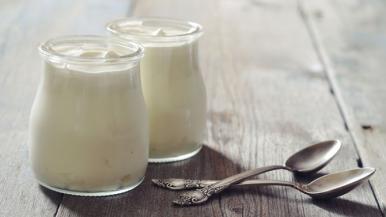Although bacteria generally have a bad reputation, there's been a lot of buzz about the health benefits of probiotics — or "friendly bacteria" — and prebiotics, which promote the growth of these bacteria.
But what exactly are they, and why are they helpful? Here's the 411:
- Probiotics are active, live cultures that, when administered in adequate amounts, help reintroduce or change bacteria in the intestine. Research suggests probiotics may help maintain healthful bacteria in the intestines and also may improve immune health.
- Prebiotics are nondigestible carbohydrates that stimulate the growth of good bacteria in the intestines and help protect the intestine from unfriendly bacteria. Prebiotics also can complement the actions of probiotics and help feed the healthy bacteria introduced into the gastrointestinal tract.
Where to find probiotics and prebiotics
One of the best-known sources of probiotics is live-cultured yogurt. Other foods rich in probiotics include the following:
- Green pickles
- Miso soup
- Sauerkraut and kimchi (a spicy, sour fermented cabbage)
- Tempeh (a fermented grain made of soy beans that is often used as a substitute for animal proteins in vegetarian cuisine)
Unlike probiotics, prebiotics are not living bacteria themselves. Instead, they are usually fibers, like insulin, and are found in a variety of raw (uncooked) foods, including the following:
- Asparagus
- Garlic
- Jerusalem artichoke
- Leeks
- Onion (cooked onion also has prebiotics, though slightly less than raw onion)
- Wheat bran
Prebiotics, like probiotics, also now are being added to many food products, including fiber bars, cereals, drinks and yogurt.
Probiotics and prebiotics in general are considered safe — few people experience negative side effects — and often can be added safely to your diet.
Synbiotic products, such as kefir (a fermented mild drink that’s become popular in recent years), include both probiotics and prebiotics, as they contain live bacteria and substances to help healthy bacteria grow.
Are probiotics and prebiotics safe?
Probiotics and prebiotics in general are considered safe — few people experience negative side effects — and often can be added safely to your diet.
That said, anyone with a compromised immune system should get their doctor's approval before eating foods with probiotics and/or prebiotics. While many studies suggest that probiotic supplementation helps support a strong immune system, there is a potential danger in promoting the overgrowth of good and bad bacteria in patients with weak immune defenses.
And talk to your doctor before taking supplements containing probiotics or prebiotics. Supplements do not undergo the same testing and approval as prescription drugs. There is also no guarantee that the items listed on the label are actually in the product.




